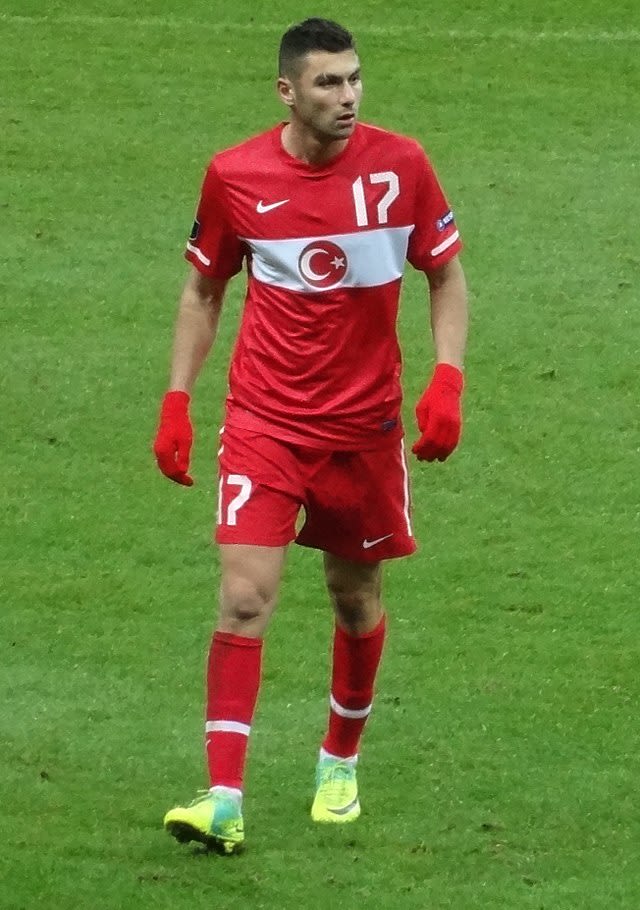Why Turkey are the 'dark horses' at Euro 2020
A strong defence built on a solid midfield and clinical attack, Turkey have the makings of a team that could go far in the tournament.

The European Championships have always produced miracle teams. From the victorious Greek team of 2004, to an Andrei Arshavin inspired Russia in 2008, to the giant-slayers of Wales and Iceland in 2016, the tournament has produced it all. 2021 will be Turkey’s year.
While this prediction could fall flat on its face and the Crescent-Stars could crash out in the group stage, I believe this team to be this year’s dark-horses.
For years there has been discussion of the Belgian, French and English golden generations, but this is largely expected for three of the European footballing heavyweights. This has allowed the ‘lesser’ nations to go somewhat unnoticed. Turkey has a history of being the overachievers, having reached the semi-finals of the 2002 World Cup and the 2008 European Championships. This year I expect them to do the same.
It is possible to argue that the Turkish defence is the strongest in the tournament with the exception of the favourites, France. The most notable name comes in the form of Leicester City’s Çağlar Söyüncü who has helped propel the Foxes to back-to-back fifth-place finishes in the Premier League as well as the club’s first FA Cup.
Alongside Söyüncü, it is expected that Juventus centre-half Merih Demiral will start in place of Liverpool loanee Ozan Kabak. Demiral has impressed in the 24 appearances he made in all competitions for the Italian giants and cements a highly competent foundation at the back.
The solidity in the middle of the defence is accompanied by attacking potency at full-back. Mehmet Çelik is the most sought-after right-back in Europe currently following consistent performances for the French champions Lille. Çelik, strong defensively and offensively, supposedly has many suitors in the Premier League and if his form continues his stock will only continue to soar. On the opposing flank is the raw but explosive Rıdvan Yılmaz. Despite only recently turning 20 last month, the highly ambitious full-back recently spoke of his desire to play in England and for Arsenal. Yilmaz played a key role in helping Beşiktaş lift the Turkish Süper Lig.
The midfield double-pivot of Ozan Tufan and Okay Yokuşlu provides much needed balance to the side. Tufan has emerged as one of the Süper Lig’s best box-to-box midfielders alongside Luiz Gustavo for Fenerbahçe. Yokuşlu, like Gustavo, is very strong defensively and was hugely impressive in a very poor West Brom side following his loan move to the Hawthorns in January.
Defensive stoicism is matched with swathes of attacking flair, pace and clinical finishing. The focal point of the attack is Burak Yılmaz. The veteran striker scored 16 goals for Lille, averaging a goal every 126 minutes in Ligue Un, bettered only by Kylian Mbappe (88 minutes-per-goal). Completing the Lille trifecta is Yusuf Yazici. The attacking-midfielder contributed to 19 goals across 42 games in all competitions and the understanding the pair will have developed in Northern France will be invaluable for the national team.
The wide positions will likely be occupied by Hakan Çalhanoğlu and Cengiz Ünder. Both technically good players, but equally inconsistent. The former has struggled to live up to early career expectations and the latter appears to be following the same path. Çalhanoğlu has endured an average spell at AC Milan which will come to an end when his contract expires this month. Ünder, on loan at Leicester last season from Roma, has also underwhelmed – playing only nine Premier League games. If they can recapture their magic, they will form part of an intriguing front four.
So how does this team navigate its way to the semi-finals?
Admittedly, Turkey will need a little bit of luck. It is possible that they could beat Italy, but it is most likely that they will finish second in Group A above Wales and Switzerland.
While no side will be looking to lose, it may be beneficial to finish runners-up. They would then play the side who finished second in Group B (Belgium, Denmark, Russia, Finland). Belgium will comfortably top the group and so Turkey would expectedly face Denmark in the Round of Sixteen.
Beating Denmark should be fairly straightforward. The quarter-finals become slightly more difficult against, most likely, the Netherlands. However, this is not the forgone conclusion it might once have been. The Dutch team is missing Virgil van Dijk and is bereft of any real quality, aside from Frenkie de Jong and Matthijs de Ligt.
In March, the Dutch were beaten 4-2 by Turkey, with Burak Yilmaz scoring a hattrick. The game demonstrated the key disparities between the sides. Turkey was solid defensively and clinical on the counter-attack, greatly outperforming their expected goals (xG) of 1.21. The Netherlands was wasteful in front of goal and lethargic in build-up, unable to profit from their 2.59 xG.
Edging out the Netherlands and reaching the semi-finals would be a great achievement. However, this is where their campaign will end. It is almost certain that they would be up against one of the three favourites in England or Portugal/France (depending on who tops Group F). As strong as this Turkey side is, it is not a very deep squad and is significantly weaker than the three mentioned.
The European Championships always throw up an unexpected fairy-tale. Turkey, not widely-regarded as having any chance, are best suited to be this year’s underdog. A very strong side has been largely overlooked in favour of the heavyweights. However, this young, exciting, but also strong and disciplined, Turkish side has every opportunity of reaching the semi-finals.

